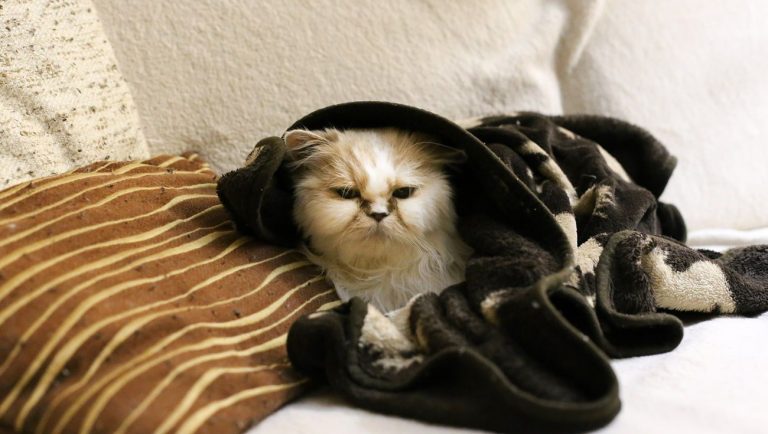Can Indoor Cats Catch Colds? Debunking the Myths and Understanding Feline Upper Respiratory Infections
The chilly season often finds us humans snuggled on the sofa, battling coughs and sneezes. This prompts many pet owners to wonder: can cuddling with their feline companions lead to a shared cold? The answer, while seemingly simple, requires a deeper understanding of how feline and human respiratory illnesses differ.
What Causes the Common Cold in Humans?
Human colds are primarily caused by viruses that infect the upper respiratory system – the nose, throat, pharynx, and bronchioles. Rhinoviruses are the most common culprits. Symptoms can vary, but often include:
- Runny nose
- Watery eyes
- Sneezing
- Cough
- Fever
- Fatigue
While some colds are more severe than others, symptoms typically last 7-10 days before resolving naturally.
Can Cats Catch a Human Cold? The Species-Specific Nature of Viruses
The microorganisms that cause the common cold are species-specific. This means they only cause symptoms in the species they are adapted to infect. In cats, most upper respiratory infections (URIs), often mistakenly referred to as “colds,” are caused by caliciviruses or herpesviruses. Therefore, cats cannot contract the human cold (and vice versa), but they do have their own set of viral and bacterial respiratory infections.
Recognizing the Signs of a Feline Cold: Symptoms to Watch For
The signs of an upper respiratory infection in cats mirror some human cold symptoms, including:
- Sneezing
- Coughing
- Lethargy (unusual sleepiness)
- Loss of appetite
- Fever
Kittens, in particular, are more vulnerable to severe infections, potentially leading to more serious illness. Unlike humans or dogs, cats are more likely to refuse food when sick. This is often because their sense of smell is crucial to their eating habits. A congested nose, for instance, can significantly impair their ability to detect food odors, rapidly leading to dehydration and a worsening of symptoms.
How Do Indoor Cats Get Colds? Understanding Transmission
While cats primarily contract URIs from other cats, the virus can spread in various environments. Places like catteries, pet stores, grooming salons, or veterinary clinics are high-risk areas. However, indoor cats aren’t immune. They can still become ill through contact with other cats, or even indirectly if their owners unknowingly carry the bacteria on their clothes or hands.
Taking Action: When to Seek Veterinary Care
If your indoor cat shows signs of a cold, it’s crucial to isolate them from other cats and seek veterinary attention promptly. Early intervention can significantly improve their chances of a full recovery and prevent the spread of infection. Don’t delay; quick action is key to mitigating the severity of the illness.
Preventing Feline Colds: Proactive Measures for Indoor Cats
While complete prevention isn’t always possible, proactive measures can significantly reduce the risk of your indoor cat contracting a URI. These include:
- Regular veterinary checkups: Early detection of any health issues is crucial.
- Vaccination: Consult your veterinarian about appropriate vaccines.
- Maintaining cleanliness: Regular cleaning of food and water bowls, litter boxes, and play areas.
- Careful introduction of new cats: A slow and supervised introduction minimizes stress and potential exposure to illness.
- Hand hygiene: Always wash your hands thoroughly after handling your cat.
Debunking Common Misconceptions
It’s essential to dispel the myth that a human cold can be directly transmitted to cats. While both species experience upper respiratory infections, the viruses responsible are different. Focusing on preventing feline-specific URI’s through good hygiene and veterinary care is the most effective approach to keeping your indoor cat healthy. Understanding the unique nature of feline upper respiratory infections enables responsible pet ownership and helps ensure the well-being of your beloved companion. Don’t hesitate to contact your veterinarian with any concerns or questions. They are your best resource for providing the appropriate care for your cat’s health.

